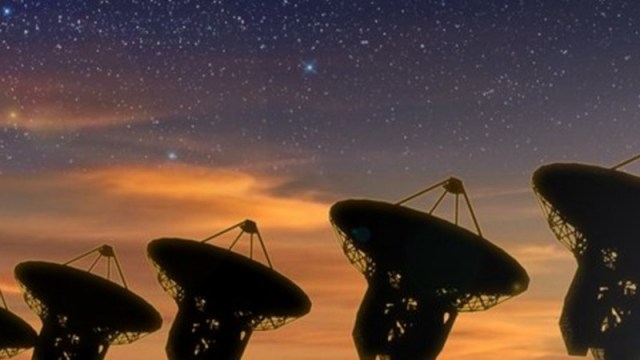Human extinction! Don’t panic; think about it like a philosopher.

Shutterstock
- A new opinion piece in The New York Times argues that humanity is so horrible to other forms of life that our extinction wouldn't be all that bad, morally speaking.
- The author, Dr. Todd May, is a philosopher who is known for advising the writers of The Good Place.
- The idea of human extinction is a big one, with lots of disagreement on its moral value.
Humans could go extinct. The idea has been floating around science fiction since 1826, it dominated diplomatic thinking during the Cold War, and it fills the existentially inclined with dread. We’ve had some difficult times in the past, but today the only real threat to humanity is suicide.
While most people would think humans going extinct would be an obviously bad thing, these people aren’t philosophers. This strange breed of human looks at the problem from many perspectives and often comes to conclusions that might shock you.
A tragedy, but not a bad thing.
In his opinion essay in The New York Times, philosophy professor Todd May considers the idea of human extinction and decides it would be “a tragedy” but notes that “it might just be a good thing.”
Knowing how confusing that sentence was, he explains the idea by looking to tragic heroes in literature. Characters like Oedipus and King Lear do bad things yet invoke our sympathy. The idea is that humanity is doing bad things that could only be stopped with the extinction of humanity, but that we still have every reason to feel sympathetic for humanity despite this.
The “bad things” Dr. May refers to in this case are the suffering we cause to animals and the damage we cause to the environment. He makes specific reference to the vast numbers of animals we breed into existence, cram into factory farms to live unpleasant lives getting fat, then eat them, as one example. He mentions how human-caused climate change will alter Yellowstone National Park as another. Our often wanton destruction of the environment is unmatched by any other creature.
He concludes that while humanity has done some good things, like making art and writing good plays, it would “make the world better off” to see us go. The loss of the art, beauty, and the rest would be the tragic element that should invoke sympathy but doesn’t outweigh what we’re doing to nature. He admits the harshness and controversial nature of this stance and explains:
“It may well be, then, that the extinction of humanity would make the world better off and yet would be a tragedy. I don’t want to say this for sure, since the issue is quite complex. But it certainly seems a live possibility, and that by itself disturbs me.”
Is this opinion popular? Should I be concerned?
The idea that it would be for the best if humanity died off is held by more people than you might imagine. The Voluntary Human Extinction Movement (yes, it is real) encourages its supporters to not have children in hopes that humanity will peacefully die off.
The perpetually depressed Schopenhauer was an anti-natalist, one who thinks having children is morally wrong, because he thought most people would be doomed to live lives dominated by suffering. Several other thinkers, most notably David Benatar, agree with him. If these arguments were carried to their logical extreme, there wouldn’t be any humans left after a few decades.
Others, including Benatar and the extinction movement people, agree with Dr. May that creating more humans causes more environmental trouble than is morally justifiable and that we should stop reproducing now.
Now, none of these groups or people advocate suicide or murder. They argue only that we shouldn’t create more people. There is a, generally accepted, moral difference between people who are alive and people who could exist. While saying we shouldn’t have more kids doesn’t cause harm, since people who never existed can’t be harmed, killing people currently alive does harm people. So you needn’t worry about armies of philosophical Unabombers cropping up anytime soon.
What about the side for human life? Who is on that side?
Dr. May does refer to stances one could take that would cause you to disagree with them. One such position would be to assume there is a “profound moral gap” between animals and humans. If you did this, the suffering we cause animals to feel could be dismissed off hand because the animals have no moral standing.
Plenty of philosophers have argued for this exact thing. Most famous among them was Immanuel Kant, who argued that we should be kind to animals as practice for being nice to people but considered them things without moral rights. He would probably find the idea that we should drive ourselves to extinction for the sake of those animals to be absurd. Christine Korsgaard, a modern Kantian theorist, disagrees and argues that animals are worthy of some moral consideration while admitting that our capacity for reflective, normative thinking is a unique feature that may have moral weight.
There is also a more moderate route other thinkers take. Dr. Temple Grandin, a professor of animal science at Colorado State University and noted autism spokesperson, argues that raising animals for the sole purpose of eating them is ethical but that we should assure them a decent life with a minimum of pain. Her stance would both allow humans to continue existing and using animals for our benefit while improving life for those animals; no extinctions required.
Even Peter Singer, a philosopher who has been known to stake out a controversial stance now and then, argues that we should give animals moral consideration but has yet to say that we ought to die off for their sake. Instead, he has argued that we ought to stop needlessly causing them harm and perhaps take up vegetarianism.
Would the world be better off without humanity?
It is also possible to take issue with the claim that the environment would be that much better off without humans or that the effect of humanity on the environment is so awful that we ought to die off. Nature can be sickeningly cruel without any human intervention. Animals can cause as much deforestation and environmental degradation as humanity does at the local scale. Plants, as well as humans, have caused climate catastrophes by changing the composition of the atmosphere.
There were two dozen mass extinction events before the evolution of modern humans. One of these, the Permian–Triassic extinction event, saw 96% of all marine and 70% of all land-dwelling vertebrate life die. The famous Cretaceous extinction event featured the death of the dinosaurs and almost every land animal that weighed more than 55 pounds as the result of a giant asteroid hitting the earth, as they often have done and will do again. Humans have yet to do anything with nearly the kind of impact on the environment as these random events had.
While our destroying the environment is not made acceptable by the fact a random occurrence might do the same thing, it does make the argument that humans should die off for the sake of the environment lose a bit of its punch. After all, if another mass extinction event is inevitable, which many people think is the case, then getting rid of humans doesn’t actually accomplish much in the way of protecting the environment over the long run.
It would only serve to assure that, after that next cataclysm, both the environment and human-made wonders like the works of Shakespeare are obliterated. Since Dr. May does suggest that the works of art humanity creates have value and that there is something to be said for our being the only animal that can truly contemplate beauty, a world where we are gone and nature takes it course seems to be the worst one of all.
Would humanity going the way of the dodo be a bad thing? Some philosophers don’t think so, though they might shed a tear or two for us anyway. While the rate of population increase makes the immediate risk of extinction seem low, risks are always present. So, think for a moment, if we went away, how sad a thing would it be?





